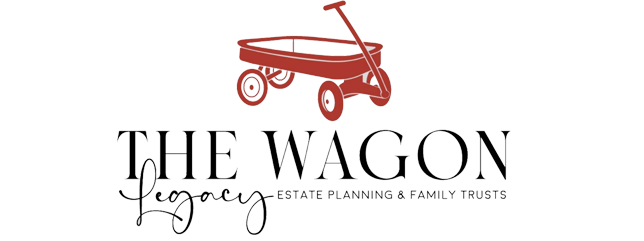Not long ago, a few of our clients sent me messages I never expected: “Alex, did you know there’s another estate planning firm using your same logo and a very similar name?”
They were right — someone in another state had launched a firm that looked suspiciously like The Wagon Legacy. Thankfully, they’re in a different geographical area, so it’s not causing confusion for our local clients. But the experience was a powerful reminder: your name, brand, and creative work are assets worth protecting — just like your home, investments, and bank accounts.
And if you don’t take steps to protect them now, it’s much harder for your loved ones to do it later.
What Counts as Intellectual Property?
Intellectual property (IP) refers to creations of the mind — assets that can be just as valuable as physical property. These can include:
- Trademarks – business names, logos, slogans, or other brand identifiers.
- Copyrights – books, music, photographs, art, blog posts, software, and more.
- Patents – inventions, designs, or unique processes.
- Rights of publicity – your name, likeness, and image.
Why It Matters for Estate Planning
IP doesn’t sit in a driveway or a bank account, so it’s easy to overlook. But it’s still property — and without clear instructions in your will or trust, it can:
- End up in the wrong hands or be mismanaged.
- Lose legal protection if deadlines for renewals are missed.
- Be tied up in disputes between heirs.
Five Steps to Protect Your IP
- Make a Complete List
Identify every trademark, copyright, patent, domain name, and licensing agreement you own. - Get Proper Registration
Federal or state registration makes it far easier to enforce your rights and transfer them to heirs. - Plan for Management
Will your heirs continue to use your brand? License your creative work? Sell the rights? Spell it out in your estate plan. - Track Renewal Dates
For example, trademarks require periodic filings. Without them, rights can be lost permanently. - Consider Tax Implications
Transferring IP during your lifetime can trigger taxes. A trust can help reduce that risk and streamline administration.
The Takeaway
Your estate plan is more than a set of instructions about who gets what. It’s also your opportunity to make sure your intangible assets — your brand, your creative works, your ideas — are protected and used the way you want, even after you’re gone.
If you’re not sure where to start, we can help you identify, value, and preserve these assets so they continue to benefit the people you care about.
Schedule a meeting to discuss protecting your intangible assets – Call us at 714-451-5766.
